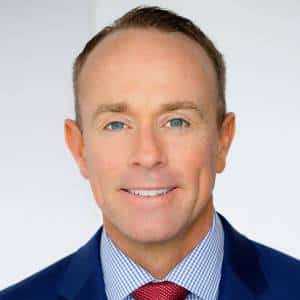
Hi - I'm Guy. I am an attorney that practices in PA, and NY. I am a former sex crimes prosecutor and my day-to-day cases are almost exclusively helping survivors of sexual abuse get justice. My team and I are ready to help.
The New Jersey Supreme Court has ruled that Child Sexual Abuse Accommodation Syndrome (CSAAS), a controversial theory that hopes to explain the behavior of children after sexual abuse, has little place in New Jersey’s courts, WHYY reports.
The State high court found insufficient scientific evidence to support the theory, which proposes a rationale for why some childhood sexual abuse survivors deny having been abused or recant their disclosures. New Jersey sex abuse attorneys will no longer be able to call expert witnesses to testify on the theory’s findings.
Introduced in 1983 by Dr. Roland Summit, CSAAS is a theory proposed to explain how some children responded to long-standing sexual abuse. Dr. Summit theorized that, in attempting to resolve the conflict between their experiences of sexual abuse and the real-world implications of disclosing the abuse to adults, children passed through 5 stages:
Dr. Summit’s goal was to explain why some sexual abuse survivors appear to act oddly when confronted by their abuse. Why do some children appear to “take back” their allegations of abuse and say they lied previously? Why do some provide conflicting accounts of their abuse, or seem unconvincing in their disclosures?
For more information from our New Jersey sexual abuse attorneys, see here.
Dr. Summit proposed CSAAS as a theory to account for the strange and often-conflicting way in which some sexual assault survivors disclose abuse during their childhoods. CSAAS soon came into use in courtrooms across the country. New Jersey’s courts recognized the theory as a legitimate argument in 1993, but critics soon came out of the woodwork.
Under the CSAAS model, nearly any statement by an alleged childhood victim can be construed as evidence of abuse. If one takes CSAAS at face value, we would expect sexual abuse survivors to deny ever being abused, or to retract former disclosures of sexual abuse. How, then, can we discern between a legitimate denial and one that is actually evidence of sexual abuse?
CSAAS doesn’t give us a method to tell the difference; in fact, it consciously removes the distinction between the two. If a child says he wasn’t abused, CSAAS could tell us, very simply, that the child is lying, and that his denial is actually evidence that he was abused. You can see the problem clearly. Both denial and disclosure become evidence of abuse.
Needless to say, defense attorneys have been against CSAAS from the start, because it makes it hard to fight an abuse survivor’s statements in court.
Many clinical psychologists, including the University of Toronto’s Dr. Kamala London, have criticized the circular logic of CSAAS, too. “If you take this belief in CSAAS,” Dr. London says, “your belief is that when a child says they were not abused, that may be a symptom of abuse. What does someone who wasn’t abused do, if denying abuse is symptomatic of abuse?”
It is certainly true that CSAAS is not an accepted medical disorder within the psychological community. As the New Jersey Supreme Court notes, the syndrome doesn’t appear in the Diagnostic Statistical Manual of Mental Disorders (DSM-5), the so-called “Bible” of mental health. Nor is it recognized by the American Psychiatric Association or the American Psychological Association.
Continue reading: New Jersey Expands Sexual Abuse Statute Of Limitations
But, despite its theoretical difficulties, CSAAS does bear a nugget of truth. Some abuse survivors do initially deny having been abused. Some survivors delay their disclosure for years.
And other clinical psychologists are worried that, by throwing out CSAAS entirely, New Jersey’s courts will make it harder for juries to understand that some children, when faced by sexual abuse, don’t act like mature adults. “It’s really important that jurors understand that when they see that kind of behavior, that doesn’t mean it’s fake,” says Dr. Lynn Taska, a psychologist in Lawrenceville who provided expert testimony on CSAAS in the case.
Despite having questioned the credibility of CSAAS, the New Jersey Supreme Court is wary of throwing the baby out with the bath water. In his opinion for a unanimous court, Chief Justice Stuart Rabner creates an exception for expert testimony on delayed disclosure. It’s well-documented that some childhood sexual abuse survivors wait to report alleged abuse – some for years. Justice Rabner’s opinion allows evidence of this effect to be presented at trial.
CSAAS is still admitted in courts in about 40 states, along with the District of Columbia. In recent years, Dr. Summit, the man responsible for the theory, has come out to criticize the framework’s use in the court system.


